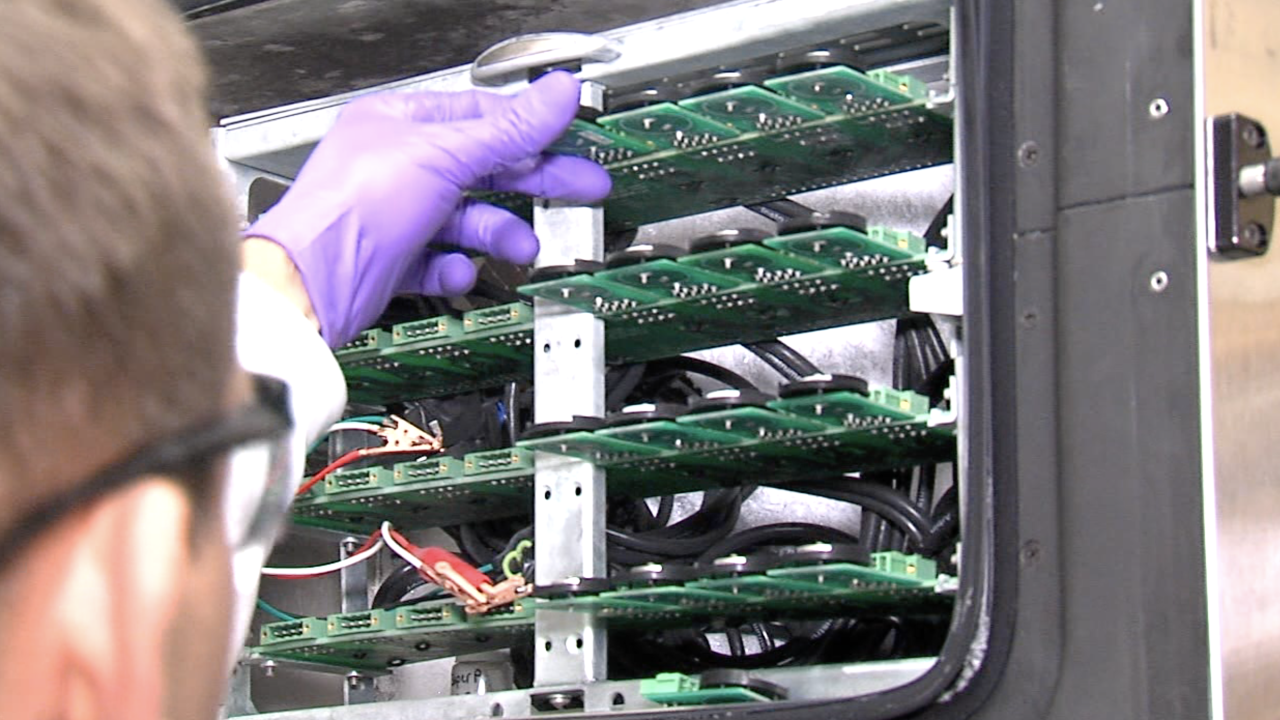WEST LAFAYETTE — Purdue University researchers are working to make your gadgets and gizmos run more efficiently.
They're using sodium carbonate, which is really similar to the table salt we use every day, to make batteries that can power things like our key fobs, golf carts and even our homes.
“So these are the coin type of cells. We make hundreds of them daily and we do have the capability to charge and discharge up to 200 daily,” Vilas Pol, a professor of chemical engineering at Purdue, said.
They are testing these batteries to see if sodium carbonate can be a good substitute for lithium batteries.
“This is a big thing and it’s going to become bigger as we are running out of lithium in the world,” Pol said. "We need something in between that has reliable energy density."
For years, Pol has been working to find an alternative to lithium batteries. Pol said sodium carbonate is 1.000 times more abundant and it’s inexpensive compared to lithium.
“We have sodium [and] salt everywhere on the Earth, any countries. For example, lithium is only available in a few countries; that includes Bolivia, Chile and a few others but sodium is everywhere, and it is inexpensive, and it will be there forever, so why don’t we use sodium instead of lithium?” Pol said.
He said per ton sodium costs $250, while lithium costs $7,000.
“Sodium ion batteries will be 20% cheaper than lithium ion batteries,” Pol said.
However, there is a downside to sodium carbonate batteries.
“The sodium element is three times heavier than lithium, so the battery would become slightly heavier,” Pol said.
While its similar to table, salt sodium carbonate is not safe for us to consume.
Researchers are hoping to one day use these batteries to power your home, your car and other items.
-
Monroe County Sheriff's Office responds to AG's claims of ICE detainee release
The Monroe County Sheriff's Office is pushing back on claims by Attorney General Todd Rokita. Rokita took to social media Thursday, saying the sheriff's office ignored an "ICE detainer request".
Foundation invests nearly $13 million in job apprenticeship programs
Indiana teenagers will think about their life after high school long before graduation, once the state's new curriculum takes effect. A new grant for job training could make those decisions easier.
Indiana teens explore manufacturing careers at Conexus TeenWorks Catapult Camp
Indiana is one of the top manufacturing states in the country, with one out of five Hoosiers working in the manufacturing field, according to Conexus Indiana.
WNBA All-Star legacy will live on through new basketball court at Indy Park
The newly refurbished court is part of the WNBA All-Star 2025 Host Committee’s goal of extending its influence beyond basketball.





